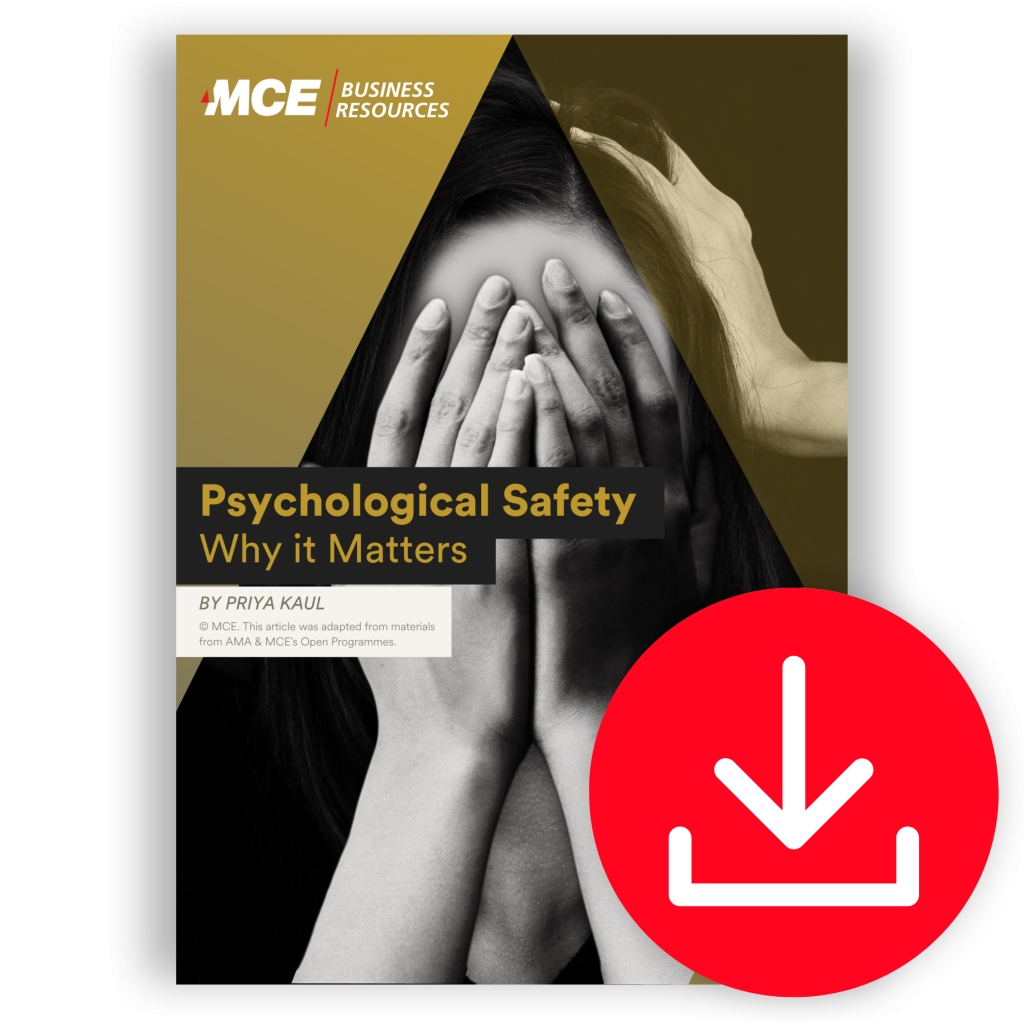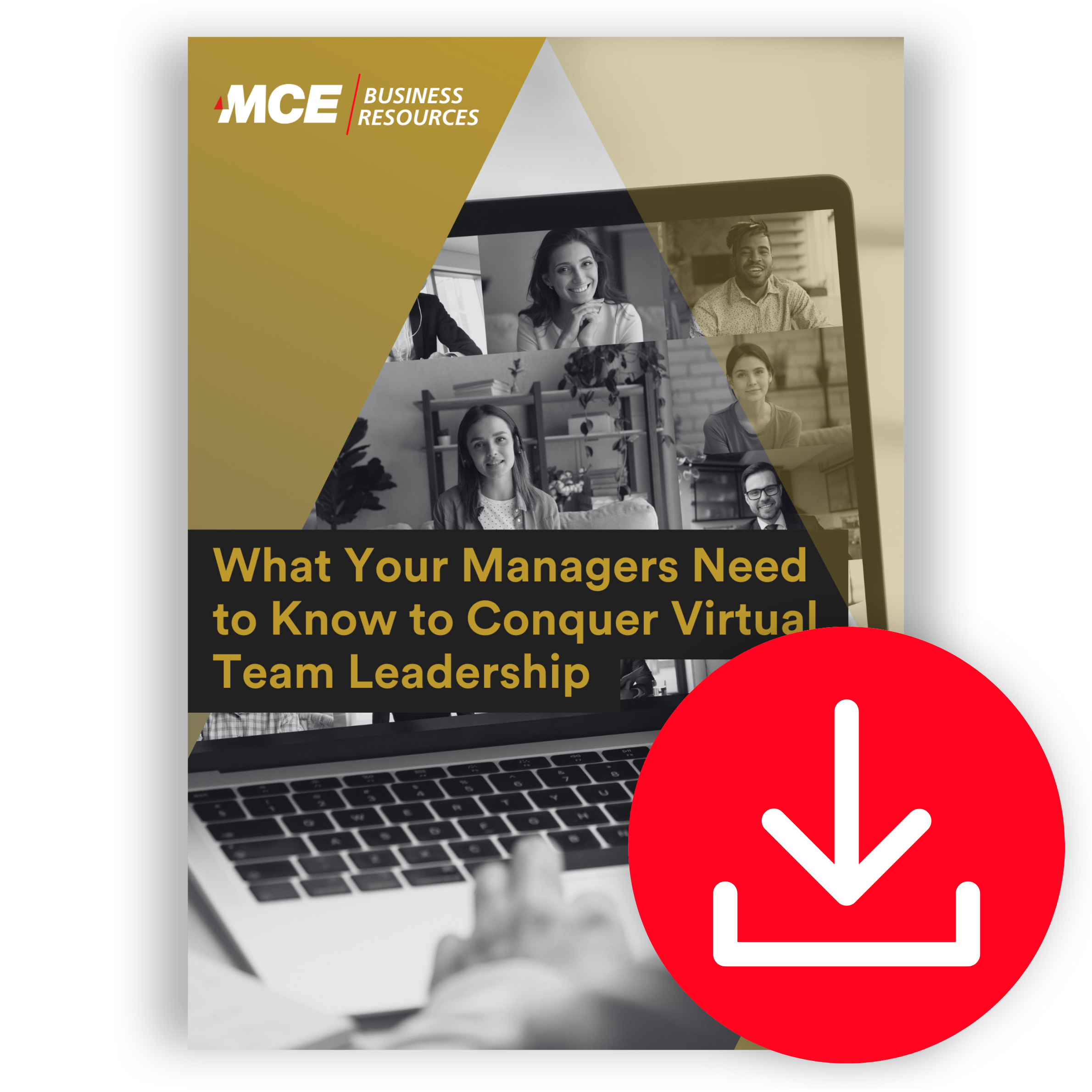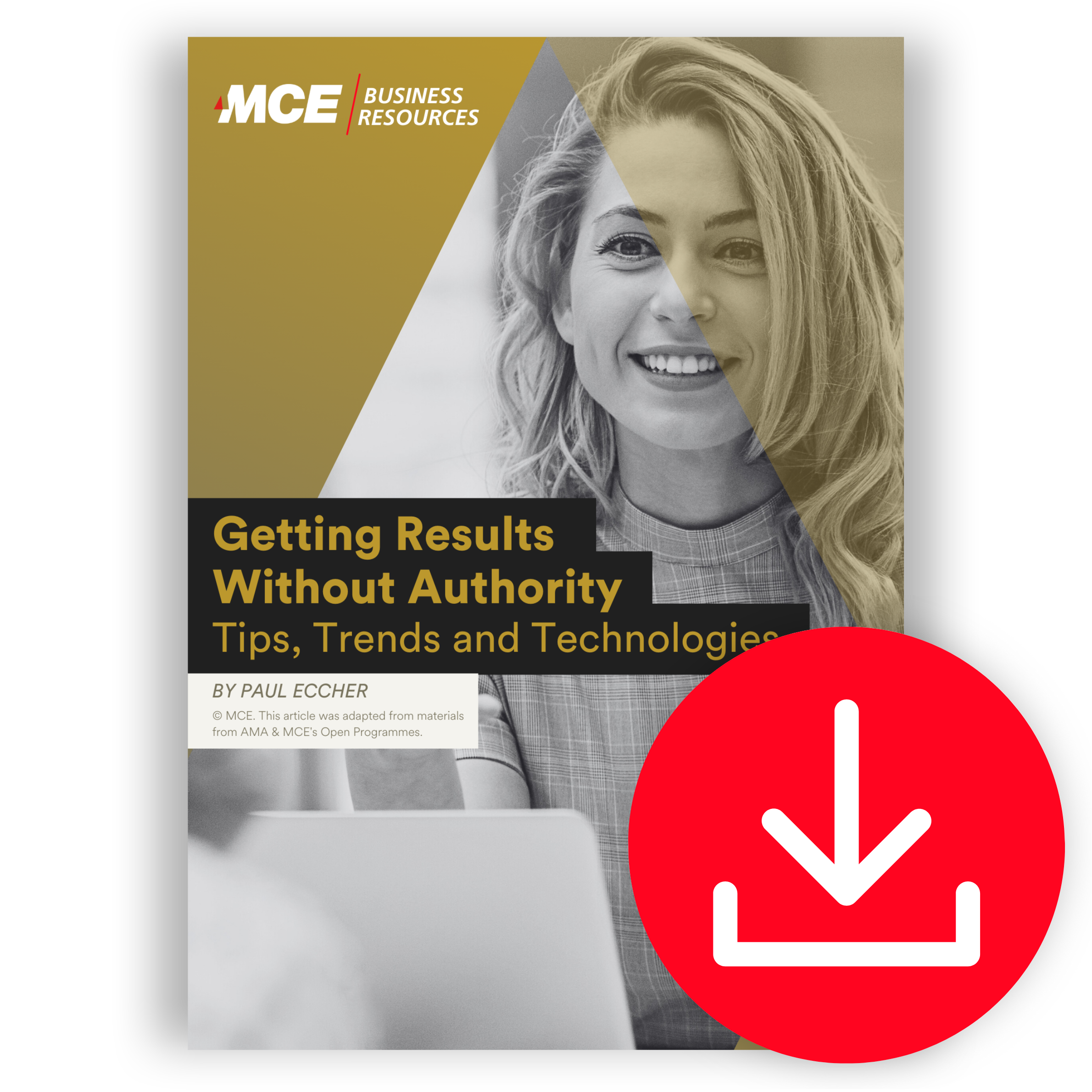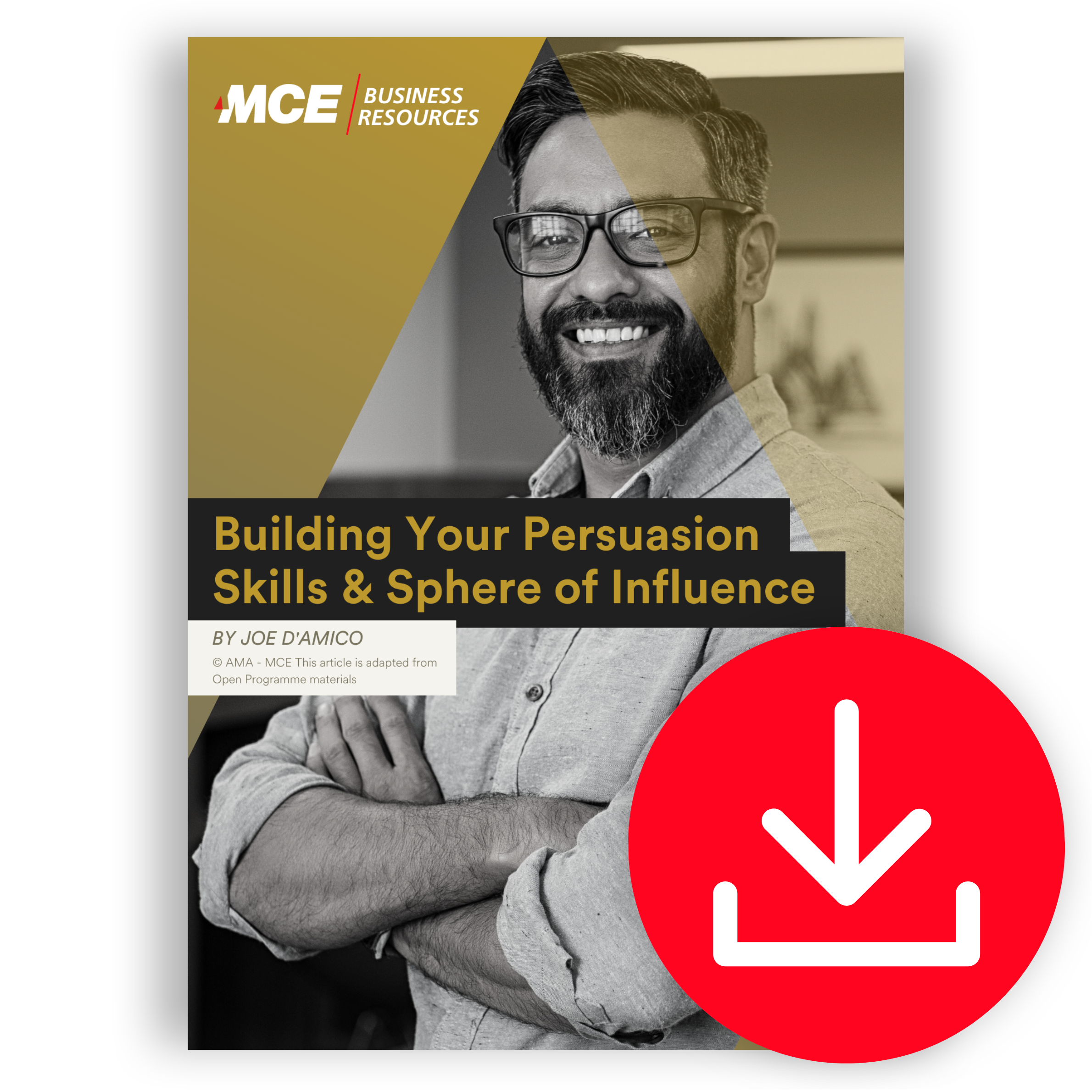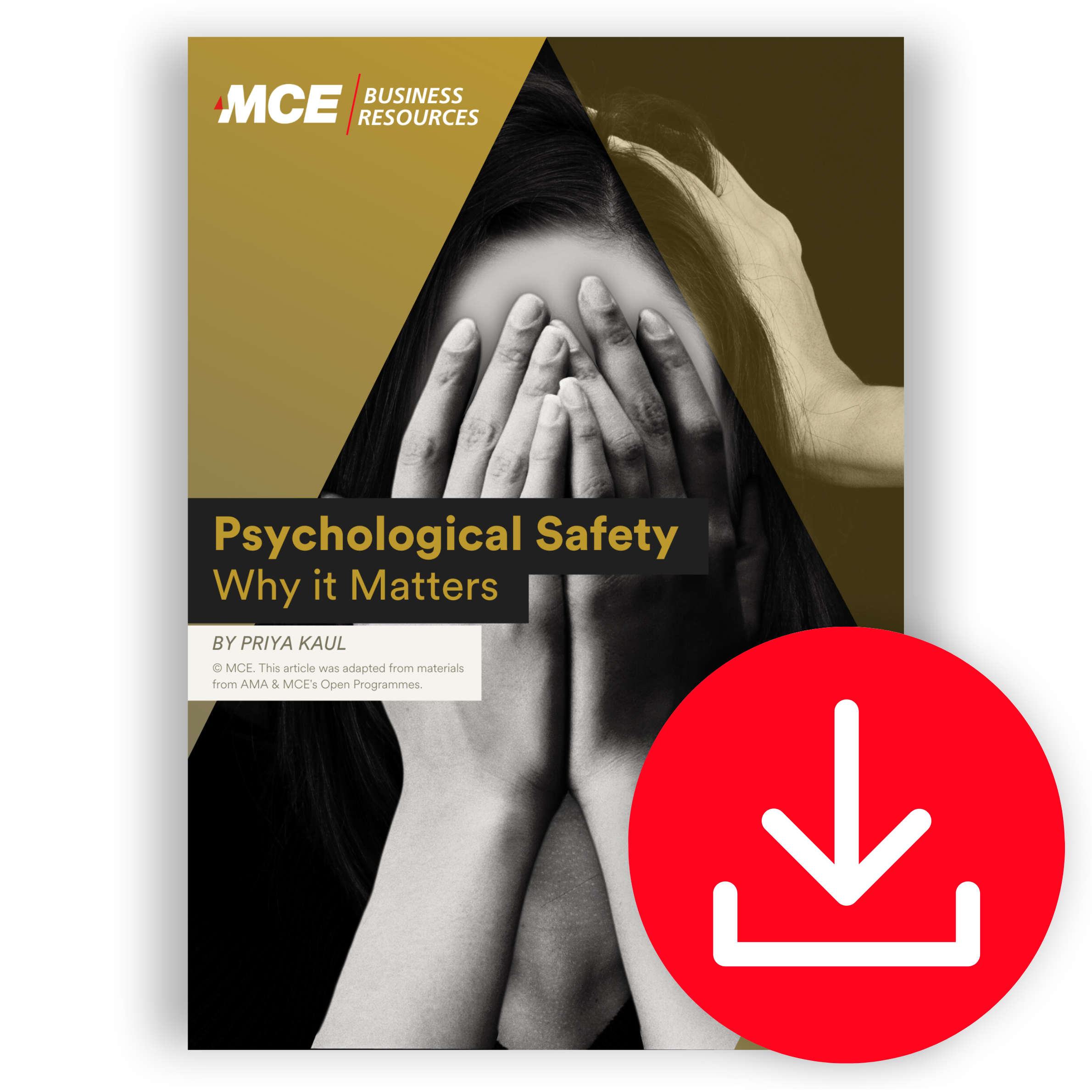
Psychological safety is becoming an increasingly popular term, referenced in numerous white papers and other literature about talent and team management.
It is not, however, a new concept. It was introduced in 1965 by E.H. Schein and W.G. Bennis in Personal and Organizational Change Through Group Methods: The Laboratory Approach (Wiley). Amy Edmondson, in more recent times, has become almost synonymous with psychological safety as a result of her 1999 study that looked at the relationship between psychological safety and high-performing teams. Google’s Project Aristotle, the results of which were highlighted by the New York Times in 2016, also identified the composition of psychological safety.
Simply put, psychological safety describes an environment that makes someone feel comfortable voicing their ideas without any fear of retribution. The concept could be challenging if not carefully interpreted. But to increase psychological safety in a team, we cannot discount the value of a small degree of discomfort and challenge needed to push boundaries toward breakthroughs, innovation, and growth.
THE REVIVAL OF PSYCHOLOGICAL SAFETY
So, why is psychological safety suddenly taking center stage?
When whispers of an illness that produced shortness of breath, flu-like symptoms, and death made their way to WHO and CDC in December 2019 and we found ourselves in a global pandemic in early 2020, the world stood still, forcing all of us to pause and recalibrate both life and work.
As the pandemic started to recede, many of us quickly realized what giant technical organizations had found in the early 2000s when hiring. These companies had already been leveraging technology to hire the best talent across the world. When the pandemic hit, their employees were used to working in geographically dispersed teams. And companies found that one of the benefits of hybrid work practices was increased revenue. The pandemic further brought into focus technology-driven virtual and hybrid work practices and approaches. This was now a reality most industries had to accept.

